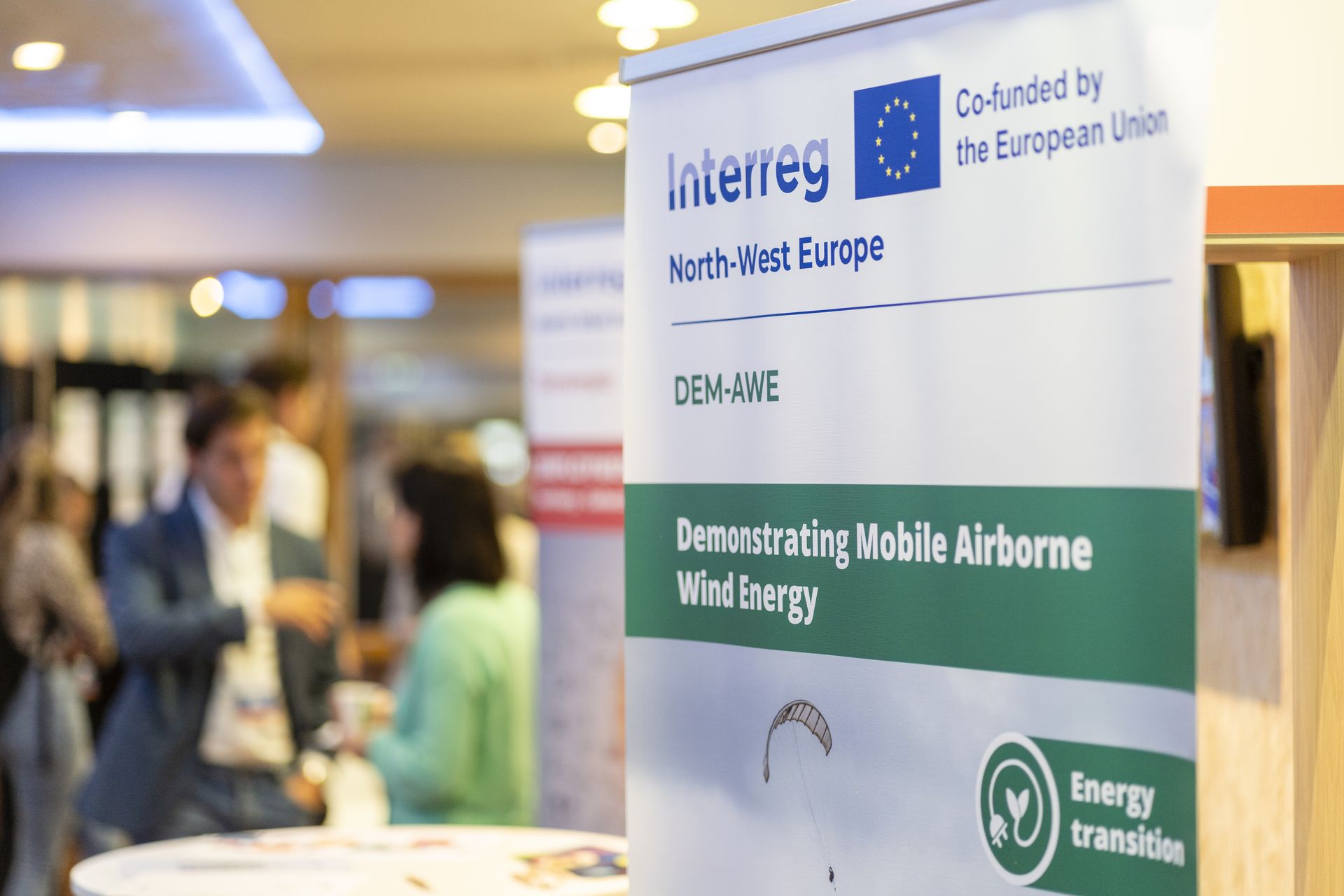The DEM-AWE project team attended the Interreg North-West Europe (NWE) Annual Partnership Event in Dublin during November 5-6, 2024, where we shared our work in advancing Airborne Wind Energy (AWE). The event brought together project partners, stakeholders, and leaders in sustainable innovation to showcase the progress of the Interreg NWE and created the foundation for the next implementation step of this impactful financing facility.
At the event, the DEM-AWE team shared the pilot findings, explaining how these advancements could pave the way for more accessible renewable energy options across North-West Europe, particularly in underserved or remote areas reliant on diesel generators.

Introducing Airborne Wind Energy to new audiences
Aiming to bring AWE closer to customers, the DEM-AWE project is conducting a pre-commercial trial of the Kite-Powered Battery Energy Storage System (K-BESS) device, which is combined with a market integration study. Unlike traditional wind, AWE systems use kites or drones to capture wind energy at higher altitudes where winds are stronger and more consistent. This allows the sector to operate effectively in areas where conventional wind technologies might not be feasible, such as rural, coastal, or island regions.
The project’s attendance at the Interreg event provided a great platform for engaging with a diverse audience of public sector and industry professionals, and other stakeholders from academia and civil society operating in the NWE Interreg area. The DEM-AWE team presented updates on the Kite-Powered Battery Energy Storage System (K-BESS) pilot project, highlighting that this cutting-edge solution can effectively complement other renewables. The participation in the event also helped to engage with those unfamiliar with AWE and expand awareness of its capabilities and applications.
Looking to the future
With the momentum gained at the Interreg Partnership event, the DEM-AWE project is poised to continue its work in making AWE technology commercially ready and advance its integration into the renewable energy sector. This opportunity to connect with other project leaders and regional authorities emphasised the need for forward-thinking solutions that align with Europe’s ambitious climate goals.
As the project progresses, the DEM-AWE team is actively seeking new partners to expand its collaboration network and build a foundation for Airborne Wind Energy to become an accessible option across North-West Europe. In preparing for the next phase of Interreg funding, the team is focused on finding new use cases for testing and strengthening the support for AWE development. By demonstrating AWE´s potential to contribute effectively to Europe’s renewable energy landscape, the DEM-AWE project partners hope to inspire ongoing investment and support for this game-changing technology.